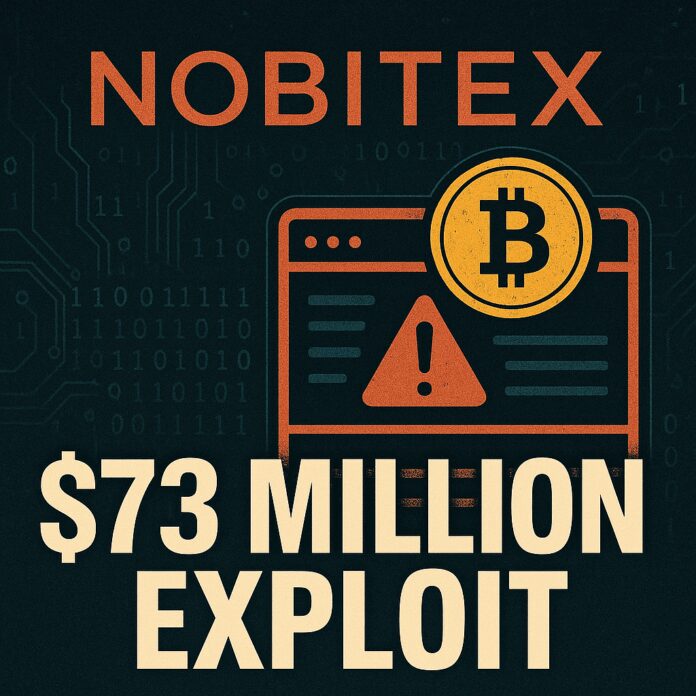The crypto industry has witnessed another major security breach. Nobitex, Iran’s largest cryptocurrency exchange, has reportedly suffered an exploit leading to the theft of over $73 million worth of crypto assets. The funds were allegedly drained across multiple blockchains, with on-chain sleuths linking the incident to laundering operations via third-party mixers.
This exploit raises serious concerns — not just about one exchange’s security, but about regional risk, regulatory vacuum, and cross-chain laundering infrastructure.
What Happened?
- More than $73 million in digital assets were siphoned from wallets associated with Nobitex.
- The funds were bridged and transferred across multiple blockchains, including Ethereum, Tron, and Binance Smart Chain.
- Activity was detected by well-known blockchain investigator ZachXBT, who flagged suspicious outbound transactions from hot wallets linked to Nobitex.
- The assets were quickly funneled through obfuscation tools such as Tornado Cash and Bitcoin bridges, complicating traceability.
Why This Matters
1. Weak Oversight in Sanctioned Jurisdictions
Nobitex operates in Iran, a country under extensive international sanctions. That means:
- Limited global cybersecurity collaboration
- Reduced access to major infrastructure (audits, custodians, insurance)
- Lowered ability to respond to global exploits or attract forensic support
2. Cross-Chain Laundering Is Getting Smarter
The attackers used multi-chain routing to cover tracks, leveraging decentralized bridges and mixers — a growing tactic that’s hard to contain.
3. Emerging Market Exchanges at Risk
As the global regulatory net tightens, exchanges in loosely governed or isolated markets become more attractive targets — with little to no consumer protection in place.
Who Is Affected?
- Nobitex Users: Thousands of Iranian crypto holders may have lost access to their funds. The exchange has yet to fully acknowledge the breach publicly.
- The Broader Ecosystem: Assets stolen from Nobitex are likely being mixed and reintroduced into global liquidity pools — especially via DeFi and P2P platforms.
- Compliance Protocols: DEXs and bridges unknowingly enabling laundering may face future pressure from regulators and analytics providers.
RateEx42 Analysis: What to Watch
When reviewing tokens, exchanges, or bridge platforms:
- ✅ Check exposure to sanctioned jurisdictions or risk regions
- ✅ Identify if protocols are frequently used in laundering paths (e.g. specific bridges or mixers)
- ✅ Monitor wallet behavior flags from trusted chain analytics sources
- ✅ Adjust token risk ratings if tied to platforms with known vulnerabilities or poor response to hacks
Final Word
This isn’t just about a single Iranian exchange. The Nobitex incident is a reminder that security, compliance, and transparency aren’t optional — they’re existential.
In the evolving world of crypto, trust must be earned — and proven — across borders, chains, and jurisdictions.
Stay alert. Rate accordingly. And know that risk doesn’t stop at your country’s edge.




